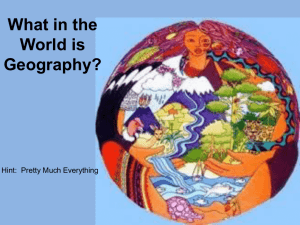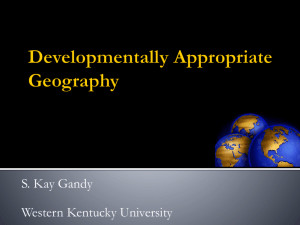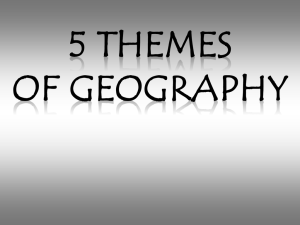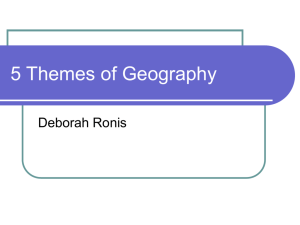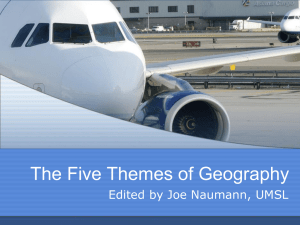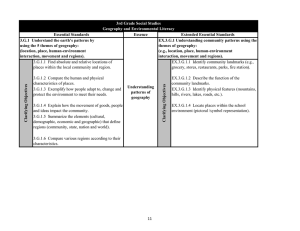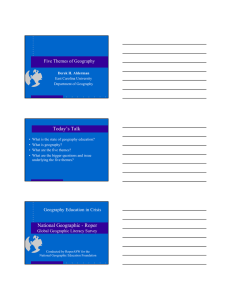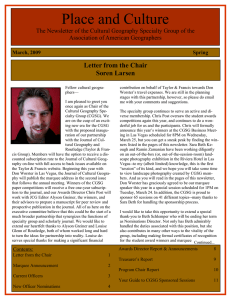Relative Location
advertisement
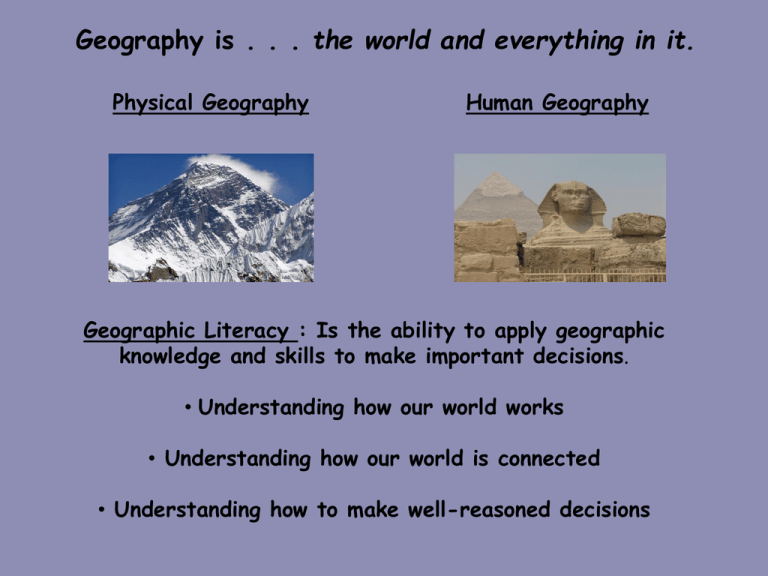
Geography is . . . the world and everything in it. Physical Geography Human Geography Geographic Literacy : Is the ability to apply geographic knowledge and skills to make important decisions. • Understanding how our world works • Understanding how our world is connected • Understanding how to make well-reasoned decisions Location Where is it? Absolute or Relative Where is it? What is it near? • Absolute Location: Expressed by using latitude and longitude, cross streets, or an address • Relative Location: Expressed by describing what it is near or how close to another place. At the top of your page • Give the absolute location of where you live. • Describe the location of your home in relation to other landmarks. Place Unique Physical or Human Characteristics What is it like there? What is it like there? • Unique physical and human characteristics such as famous physical features or manmade landmarks. – ?Important Rivers – ?famous building – ?What are the people like? – ?Culture At the top of your page . . . • Draw and describe physical features of Nevada. • At the bottom of your page . . . . • Describe unique features of Las Vegas. Human-Environment Interaction What is the relationship between humans and their environment? • Human Environmental Interaction is how the physical geography or environment affects people and how, in turn, people have changed the environment. – ?pollution – ?planting crops – ?building a dam At the top of the page . . . . • Give examples of how people have affected or change the physical environment of Nevada over time. Movement People Goods Ideas Nature How and why places are connected with one another? • Movement of people, goods and ideas • How does a religion spread from one place to another? • Does it matter how and why armies move? • Can the movement of an important resource like oil make a difference in the world? • How does the physical movement within one of the basic Earth systems affect living organisms of the biosphere? At the top of the page . . . . • Explain/illustrate how people, goods and ideas move in and out of Las Vegas. Large or small Regions Political - Physical - Cultural - Perceptual Common Characteristics How and why places are similar with one another? • We break concepts or places into smaller units to make them easier to study. • Regions can be: large: Latin America small: New England physical: Amazon River Basin political: United States cultural: common language or religion At the top of your page . . . . • Make a list of as many regions as you can think in Nevada. Location 3 S – 60 W Place Human-Environment Interaction Movement Regions Homework Time! • Five Themes of Geography Book Project • Due on or before: September 27, 2013
